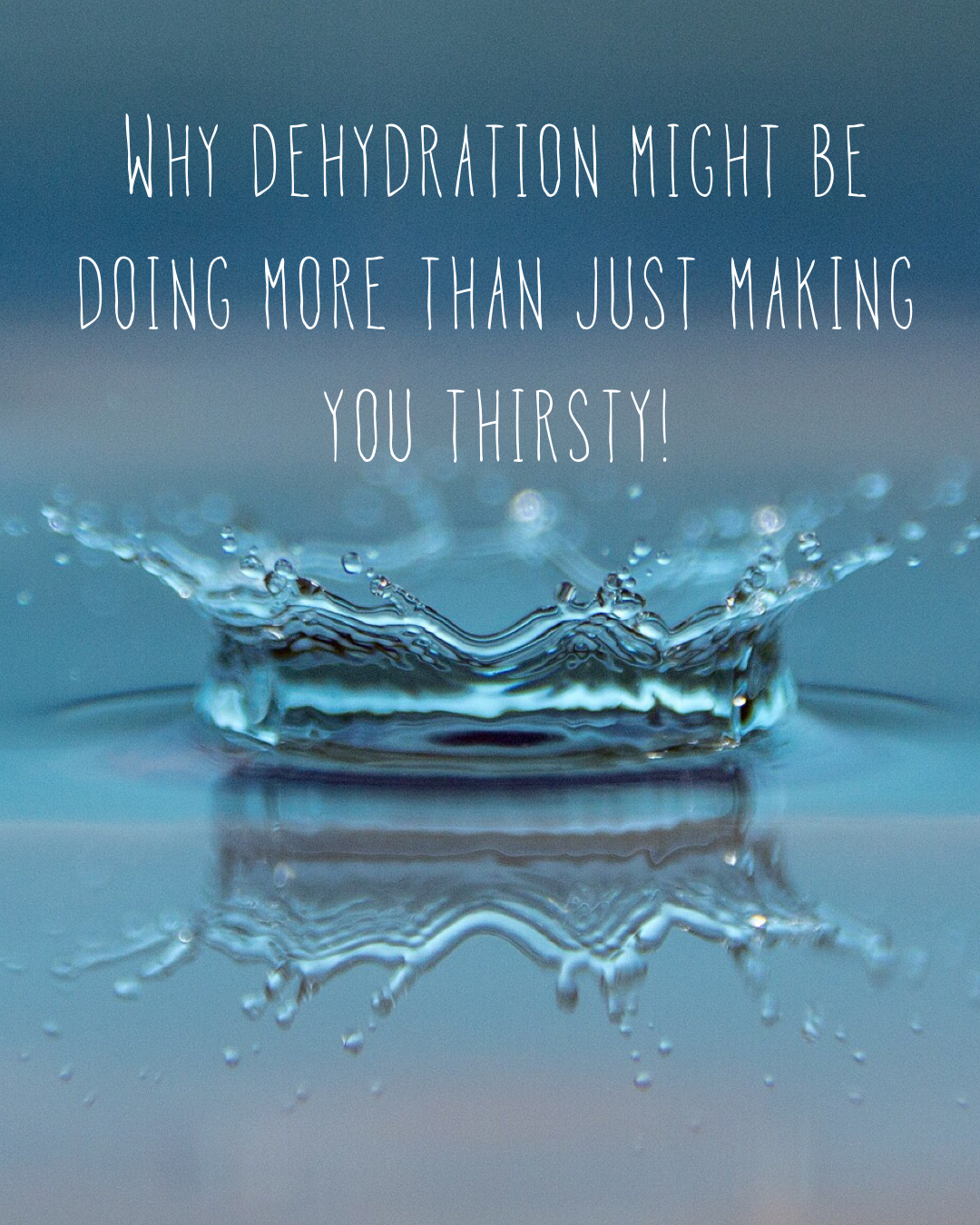Why Dehydration Might be Doing More Than Just Making You Thirsty!
Written by Heather Gerrish, RDN
Have you ever felt like drinking through a water hose, or maybe so parched that you could only think of how amazing you would feel if you had a tall glass of water nearby?
With a high likelihood you have experienced these feelings, both mentally and stemmed from a basic physiological response telling you to drink more water! Hydration is important in daily life (our metabolism being a big fan!) and even more important when you are being active (hey athletes!). Ensuring that you have a hydration practice in place and following this plan on a daily basis is not only a way to ensure that the above scenarios do not occur, but also to ensure that you are performing at your best.
Athletes require additional hydration needs on top of the “normal” requirement (that you might not even meet now - I’m looking at YOU iced coffee!). So, considering that as an athlete you might already be in a state of dehydration, how does this make you feel - or think about your current practice? Where do you stand?
Well, first step is to determine your current intake and compare this to standards for hydration (both during training and off season) and take note of some of the more common symptoms of dehydration
Signs and Symptoms of Dehydration:
Thirst
Less frequent/dark urine
Dizziness
Confusion
Fatigue
Notice how these are signs of DEHYDRATION, which is far past the marker in which athletic performance declines. At this point your body is crying out for some water and to the best that we can (within reason) we want to avoid this. Of course things happen and we forget or get busy and end up not meeting our hydration goals.
Athletic performance is affected with as little as 2-3 percent body weight loss (in sweat) [2] which supports the need to stay hydrated before, during and after workouts to ensure that you can perform your best without dehydration holding you back!
So how do you estimate your own hydration needs? It differs for everyone and the best source would be a consult with a medical professional to provide the best and most precise measure, but if you are curious to estimate on your own here are a few calculations to get you started:
Often a common calculation is to use your body weight (in pounds) and divide this in half to equal the ounces of water you should consume daily.
For example, 140 lbs/2 = 70 ounces a day (divide this by 8 ounces in a cup = ~9 cups) for someone who does not have any preexisting conditions that would influence their water needs (again, consulting with a professional and asking these questions is VERY important!).
Another method to estimate for athletes is through sweat loss. This takes some extra effort and requires you to weigh yourself before and after exercise (assuming you are well hydrated before exercise) and using the difference to calculate hydration needs to replenish what was lost during activity.
For example: 140lbs (pre) - 139 lbs (post) = 1lb lost/2.2 = 0.5 L required to replenish after exercise
*Often this calculation is based using metric conversions (2.2lbs = 1kg and for every 1kg = 1L of water).
You also should be hydrating during activity, but this can be more variable depending on your sport and intensity of your workout. For more endurance, or longer duration workouts hydration practice will look differently than if you were training for a shorter duration at a lower intensity. This might take some practice but to start with ensuring that you have access to water during activity as well as taking short sips of water throughout your workout is a good place to start. If you have questions about this be sure to ask your coaches!
Next, let’s review what you can plan and think ahead to help you not only reach this goal, but maintain your hydration needs!
Ways to Hydrate!
Invest in a water bottle you love (higher incentive to remember to bring this around with you!)
Flavor your water with fruit! (make sure to cut your fruit ahead of time for extra flavor)
Set reminders on your phone/calendar to hydrate throughout the day
If you are prone to forgetting your water bottle at home/work etc keep an empty bottle at your office or in your gym bag “just in case”
Now that you have a solid foundation and knowledge base on how to stay hydrated, make this a part of your nutrition plan to ensure that you are performing your best! Learn more about hydration here: https://ksi.uconn.edu/prevention/hydration/#
Happy Hydrating!
References:
“Dehydration.” Mayo Clinic, Mayo Foundation for Medical Education and Research, 15 Feb. 2018, www.mayoclinic.org/diseases-conditions/dehydration/symptoms-causes/syc-20354086.
https://www.ncaa.org/sites/default/files/Performance%20Hydration%20Fact%20Sheet.pdf


